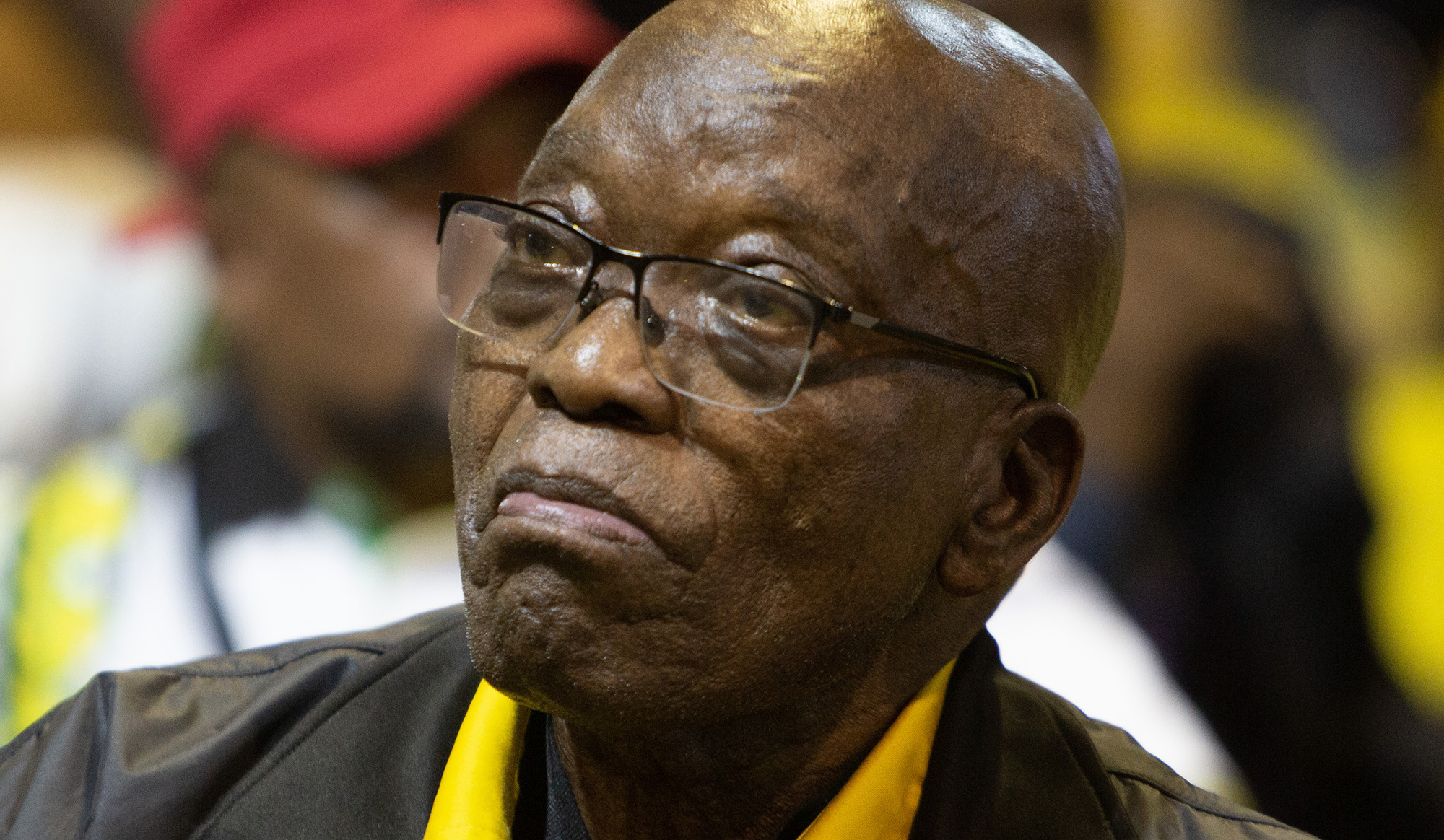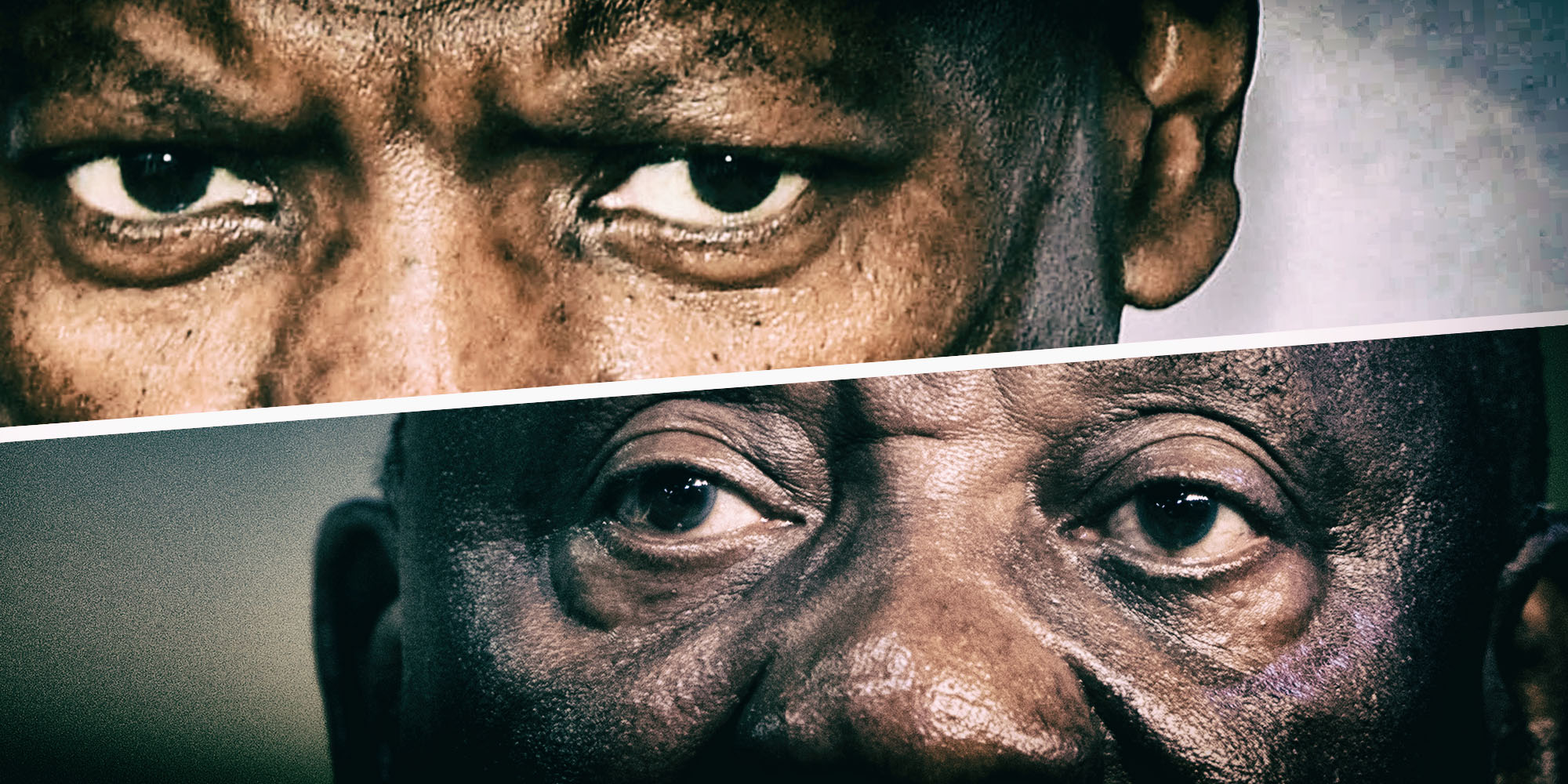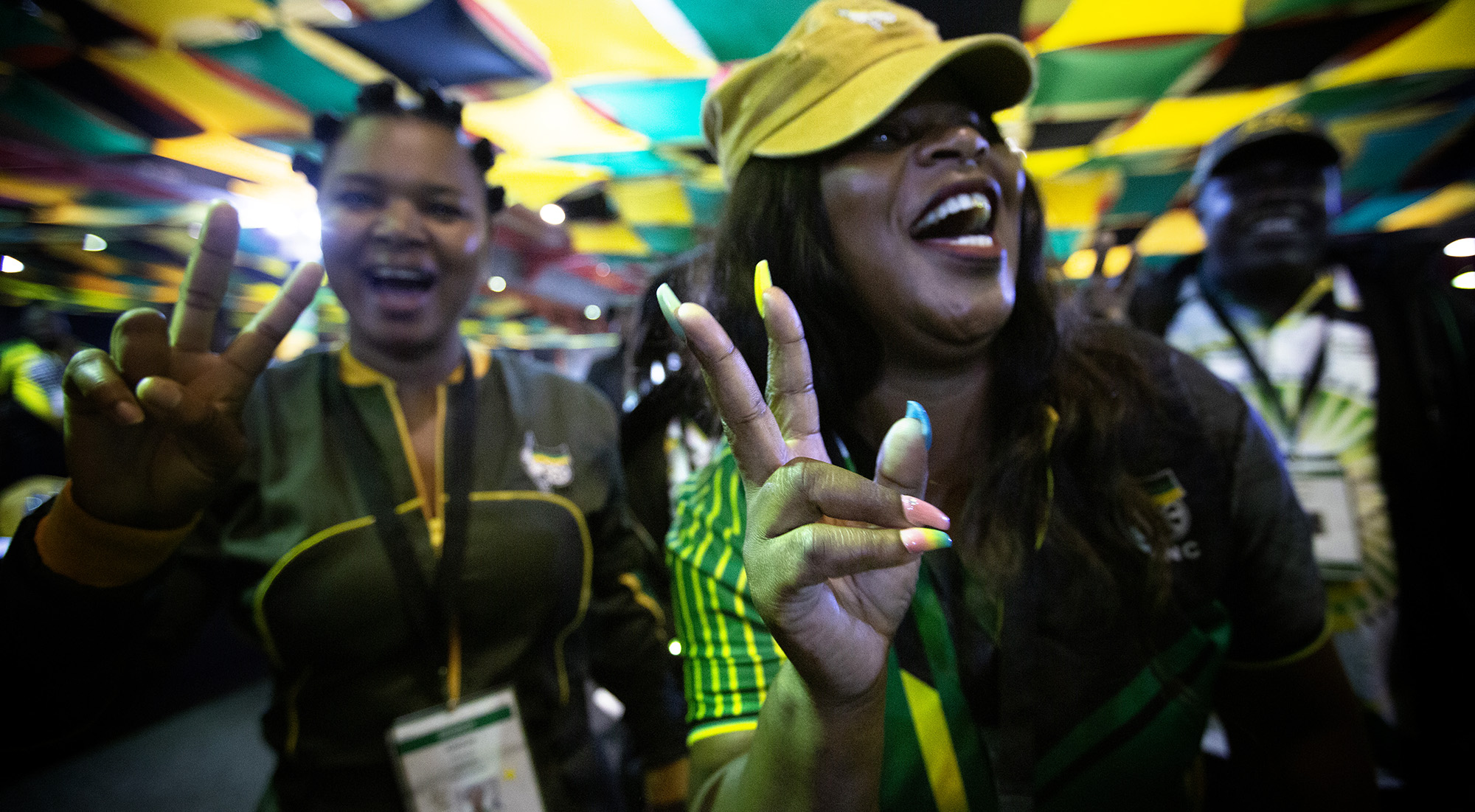When the congress is over it will be historic mainly because of what it was not. Yes, definitely rather Ramaphosa than the RET crooks. But in the view of most civil society leaders I spoke to there are not many other reasons to be cheerful about the ANC.
In 2017 it was different. Then the ANC congress took place on the crest of a wave of civil society-organised social mobilisation that had built throughout that year against the revelations of State Capture, including the Gupta leaks. It wasn’t a pro-Ramaphosa wave by any means, but it was definitely an anti-Zuma wave.
Put another way, the movement to Save South Africa was a reassertion of democracy and the vision of our Constitution. Eventually that wave grew big enough to be a reality check for many ANC leaders and delegates at the 54th congress, making it clear that the Zupta show could not go on. And helping them find the courage to outvote NDZ, JZ’s proxy candidate.
In 2017 Cyril Ramaphosa was elected President by virtue of faction politics and it was by faction politics that he risked falling again this week.
In 2017 he was the beneficiary not because he had been brave and outspoken in fighting State Capture – the Zondo Commission has now found the opposite in fact – but because he appeared the most accepting of bad choices at the time. He was a constitutionalist, a former trade unionist and a struggle grandee.
In 2017 civil society was heavily vested in the outcome of the ANC’s leadership contest and we watched and listened with bated breath. Preventing a Zuma dynasty consolidating its hold over the ANC was a necessary step to turn the tide on State Capture and to protect the Constitution.
This time it was different.
 Former president Jacob Zuma at the ANC's 55th national conference on 16 December 2022. (Photo: Leila Dougan)
Former president Jacob Zuma at the ANC's 55th national conference on 16 December 2022. (Photo: Leila Dougan)
This time civil society has been most visible by its absence. Only 29 organisations were on the credentials committee’s list of civil society organisations, think tanks and foundations – and that included Safa and Netball SA. After five years of continued corruption, austerity and lack of progress on any of the fundamental issues that affect people who are income-poor; after the mishandling of the Covid-19 pandemic (and I don’t mean just the corruption), much of progressive civil society has largely discarded its investments in the ANC.
Read in Daily Maverick: “With ANC election done, here’s what’s next on Ramaphosa’s list: The crumbling state, Cabinet reshuffle, 2024 polls”
Many feared the RET’s alternative to Ramaphosa as President. But there was no energy or passion to defend the incumbent or his universally useless ministers. Many people were resigned to whatever outcome and preparing a political life beyond the ANC based on independent, accountable and honest activism.
When Ramaphosa’s victory was announced it was a relief. But not enough to generate hope or excitement. Indeed, the 55th congress has shown us that within the ranks of the ANC, despite many real and important reforms that were aimed to improve intra-party democracy, South Africans are still left with a party whose membership has little quality and capacity for independent decision-making that is in the best interests of the country and Constitution. It’s testament to the lack of integrity of the party “cadres” that many elected delegates deserted their branch mandates and gave 1,897 votes to Dr Zweli Mkhize and 2,195 to Nomvula Mokhanyane. True, Mkhize may not have been charged over the R150-million that went astray in the Digital Vibes corruption (yet), but the evidence gathered against him by journalists and the SIU seems overwhelming and hard to refute.
 Presidential hopeful Zweli Mkhize. (Photo: Gallo Images / Darren Stewart) | President Cyril Ramaphosa. (Photo: Leila Dougan)
Presidential hopeful Zweli Mkhize. (Photo: Gallo Images / Darren Stewart) | President Cyril Ramaphosa. (Photo: Leila Dougan)
His election would have boded ill for the SIU and the NPA which must be at an advanced stage in its investigation into the allegations.
So that’s a relief.
Watershed
But the rot is not limited to the ANC. It was sad to see the SACP standing on the fence once again, with general secretary Solly Mapaila noting uncritically the messages of support the ANC received from “liberation movements”, such as Zanu-PF which is guilty of systematically unliberating its people and privatising (into their own bank accounts) national wealth.
It is evidence that the SACP is cut from the cloth of an old politics that will not be fit for the challenges ahead.
So, in many ways the ANC leadership election marks a watershed of a different sort.
Paradoxically, although it will continue as our government for a few years longer, it will not be the agency of the ANC that will shape our politics, but its inability to rise to the complex challenges of an age of menace.
Visit Daily Maverick's home page for more news, analysis and investigations
That is why this congress looks like a fundamental parting of ways between civil society and the ANC, sadly the end of a relationship forged in the trenches of the 1970s and 1980s, but from which no further good can come.
Ramaphosa’s re-election is a good thing for those working to build a framework for fighting corruption and respect for the political architecture of the Constitution.
Read in Daily Maverick: “Ramaphosa, Mashatile & Newco – These are the ANC’s Top Seven”
The ineffectual left will lament Ramaphosa’s survival. But, as many of the activists who work in the real trenches of service delivery have pointed out, despite his many failures, Ramaphosa did allow space to significantly uncover and roll back State Capture. By strengthening important institutions of democracy, including making important appointments to the Constitutional Court, like Jody Kollapen, he kept open civil space, going against a global trend.
His successors would have been far less sympathetic and would undoubtedly have sought to interfere with critical institutions of democracy, including Chapter 9 institutions, the judiciary and – knowing their unelectability – possibly even the IEC.
But there can be no illusions or “last chances”.
If media reports are accurate, his dependence on the Minister of Coal, Gwede Mantashe, and the Minister of Austerity, Enoch Godongwana, means South Africa will remain paralysed and divided in addressing the climate crisis and the realisation of constitutionally entrenched socioeconomic rights, such as access to healthcare services, sufficient food and basic education.
That is why the default position of civil society is not to trust the ANC.
Instead, democratic civic space needs to be seized now. The job of building alternatives to the ANC and all the existing political parties, has to begin seriously in 2023. There remain 18 months to transform our political landscape before the next elections. DM/MC




 Presidential hopeful Zweli Mkhize. (Photo: Gallo Images / Darren Stewart) | President Cyril Ramaphosa. (Photo: Leila Dougan)
Presidential hopeful Zweli Mkhize. (Photo: Gallo Images / Darren Stewart) | President Cyril Ramaphosa. (Photo: Leila Dougan) 